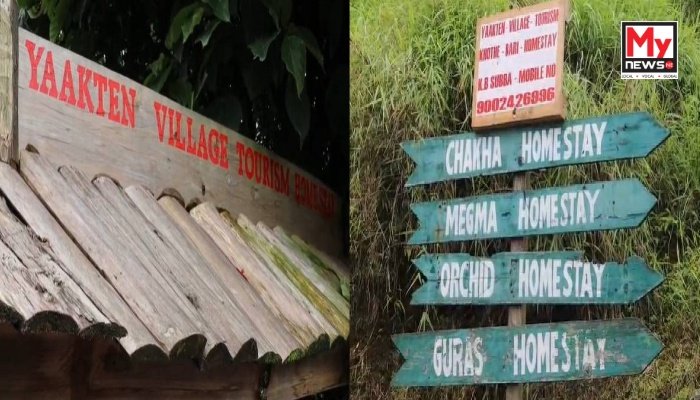
Sikkim: Yakten Becomes India’s First Digital Nomad Village, Offering a Blueprint for Rural Innovation
Gangtok: In a milestone for rural transformation, Yakten — a small village tucked away in Sikkim’s Pakyong district — was officially declared India’s first digital nomad village on Monday, July 14, 2025.
The pioneering initiative, jointly spearheaded by the Pakyong District Administration and NGO Sarvahitey, aims to attract digital professionals to live and work from remote Himalayan locations, while boosting year-round income for local residents.
The launch ceremony in Yakten saw the presence of several dignitaries including Gnathang Machong MLA Smt. Pamin Lepcha and Pakyong Zilla Adhyaksha Smt. Laden Lhamu Bhutia. Officials, community leaders, and homestay owners gathered to mark the occasion.
Set against the majestic backdrop of Mount Kanchenjunga, the once-isolated hamlet has undergone a quiet digital revolution. Today, Yakten boasts reliable high-speed internet with dual-line backup, an uninterrupted power supply, and co-working-ready homestays. These upgrades now allow remote workers to operate from the hills without sacrificing connectivity or comfort.
District Collector Rohan Ramesh, IAS, said the project reflects the Chief Minister’s ‘One Family, One Entrepreneur’ vision. “Tourism income in Yakten was limited to 4–5 months a year. Nomad Sikkim reimagines this village as a year-round destination for digital professionals, creating a sustainable economy and rural opportunity.”
The administration rapidly mobilised core infrastructure — internet, solar inverters, waste systems, and temporary drinking water pipelines — ahead of full water access under the Jal Jeevan Mission. Transport links with towns and Pakyong Airport are also being streamlined.
The response has been swift. Remote workers from cities like Bengaluru and Mumbai, and even countries like Germany and Australia, have already checked in. Many describe the location as the perfect “office with a view” — calm, affordable, and purpose-driven.
Yet, behind the celebration lies years of quiet effort. Villagers like Gyan Bahadur Subba, President of the Yakten Village Tourism Cooperative Society, say locals put their savings on the line. “Many of us took loans of ₹2 lakhs per room. We believed in the vision and built our homestays to global standards. We just hope now the support continues — beyond the tourist season.”
Water scarcity remains the biggest challenge. “Our springs dried up after the airport construction,” Subba said. “Pipelines are being laid with local help, but not every home is guaranteed a connection yet.”
He also pointed out unfulfilled commitments. “Earlier, we were promised allocation of homestays to trained tourism workers. That hasn’t happened. To fully realise this dream, Yakten needs ₹40–45 lakhs in further investment.”
Still, the community remains hopeful. Recent visits by public representatives, including support from the tourism and IT departments, have renewed optimism. Locals believe that with sustained government backing, Yakten can evolve beyond a symbolic title into a national model for inclusive, tech-enabled rural development.
As the first digital nomad village in the country, Yakten’s success could well chart a path for other Himalayan and tribal communities looking to blend culture, sustainability, and the future of work.
Read More: Gaurav Gogoi Slams Environment Ministry for Exempting Coal Plants from Anti-Pollution Tech
